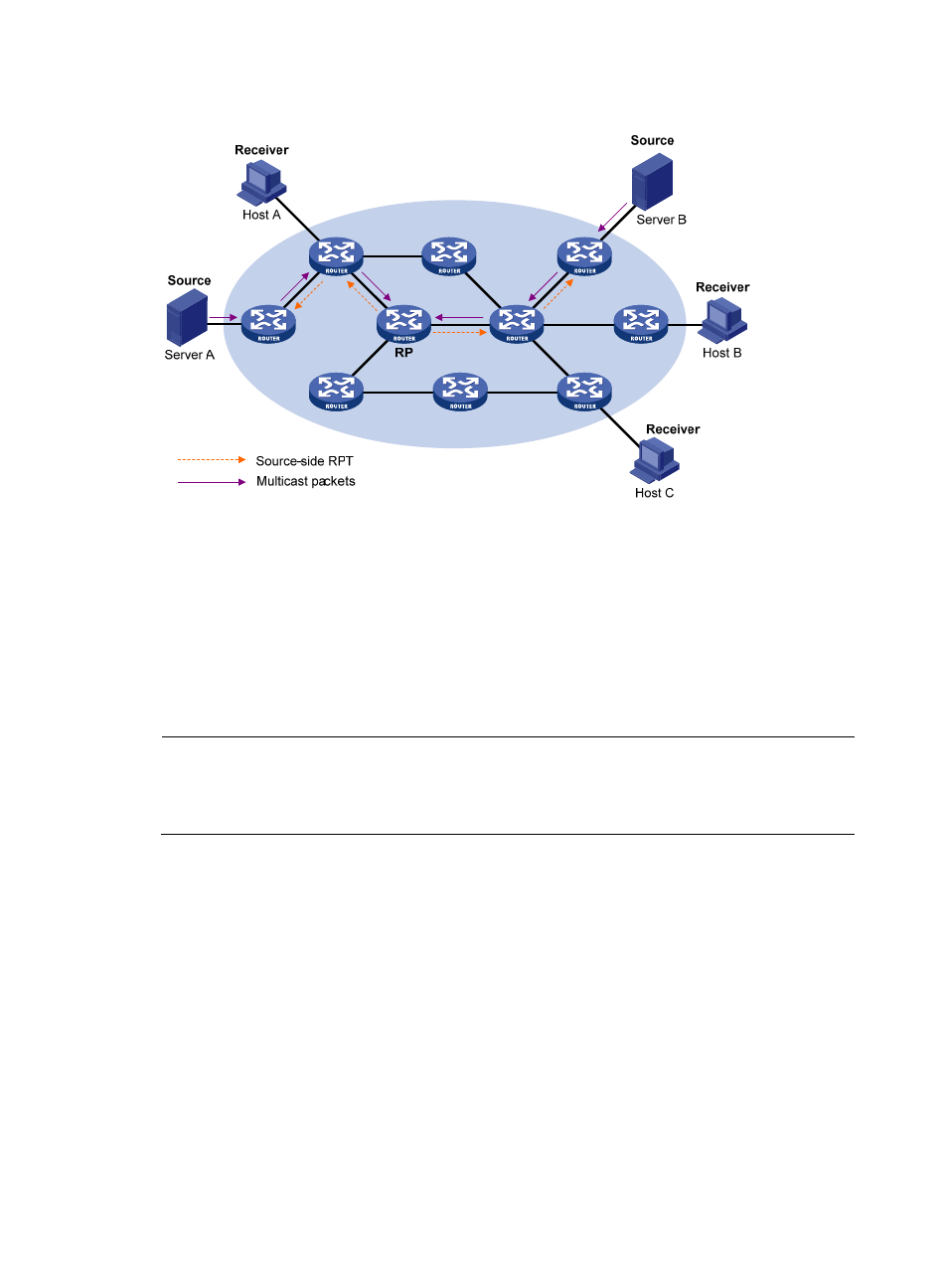Administrative scoping overview, Division of pim-sm domains – H3C Technologies H3C S12500 Series Switches User Manual
Page 136

120
Figure 45 RPT building at the multicast source side
As shown in
, the process for building a source-side RPT is relatively simple:
4.
When a multicast source sends multicast packets to multicast group G, the DF in each network
segment unconditionally forwards the packets to the RP.
5.
The routers along the path from the source's directly connected router to the RP form an RPT branch.
Each router on this branch adds a (*, G) entry to its forwarding table. The asterisk (*) means any
multicast source.
After a bidirectional RPT is built, multicast traffic is forwarded along the source-side RPT and receiver-side
RPT from sources to receivers.
NOTE:
If a receiver and a multicast source are at the same side of the RP, the source-side RPT and the
receiver-side RPT might meet at a node before reaching the RP. In this case, multicast packets are directly
forwarded by the node to the receiver, instead of by the RP.
Administrative scoping overview
Division of PIM-SM domains
Typically, a PIM-SM domain or BIDIR-PIM domain contains only one BSR, which is responsible for
advertising RP-set information within the entire PIM-SM/BIDIR-PIM domain. The information for all
multicast groups is forwarded within the network scope that the BSR administers. This is called the
"non-scoped BSR mechanism."
To implement refined management, you can divide a PIM-SM domain or BIDIR-PIM domain into one
global-scoped zone and multiple administratively scoped zones (admin-scoped zones). This is called the
"administrative scoping mechanism."
The administrative scoping mechanism effectively releases stress on the management in a single-BSR
domain and enables provision of zone-specific services through private group addresses.